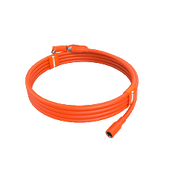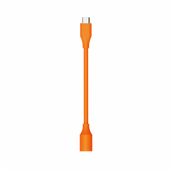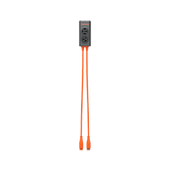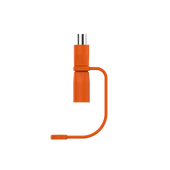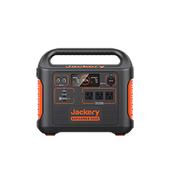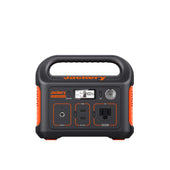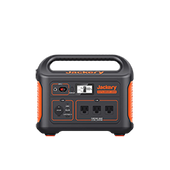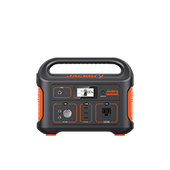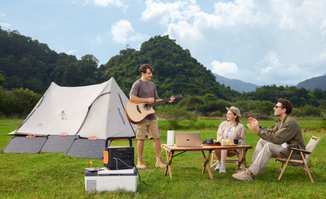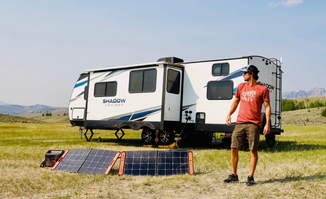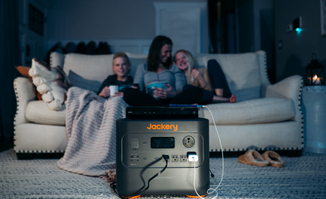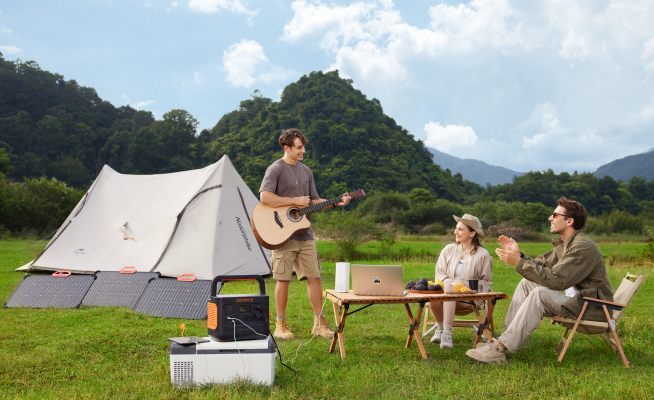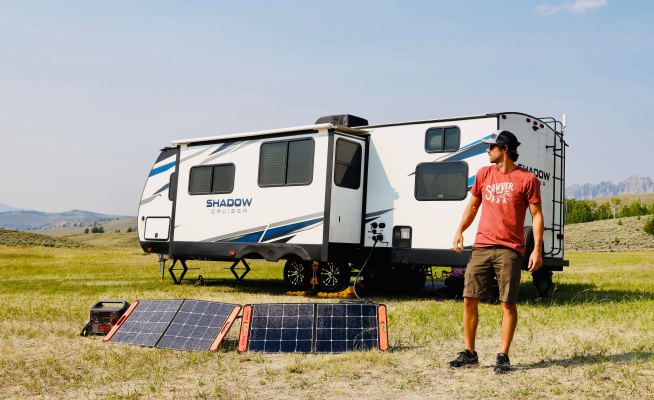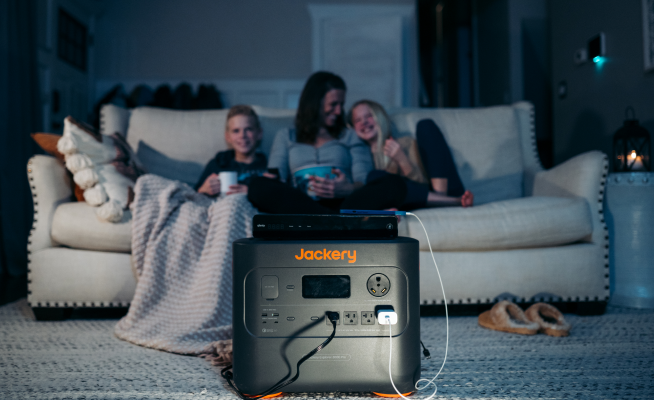How To Choose a Portable Solar Charger For Hiking
Portable solar chargers have become very popular among hikers thanks to their ability to absorb sunlight and transform it into electricity. This feature makes them useful for long-distance trips, so you can be sure that you'll never run out of power for your devices.
If you are thinking about investing in a solar battery charger for hiking, Jackery Portable Solar Generators have all the power, durability, and portability features to satisfy your needs.
What Is a Solar Charger For Hiking?

A portable solar charger for outdoor is a device that combines solar panels with a small power station. This device converts the solar energy captured by the panels into electricity that is then stored in a battery. Later, you can use this stored energy as a source of electricity for different types of devices.
Basically, a solar charger for hiking is made up of the following components:
- Solar panel:The most fundamental component, as it captures solar energy and converts it directly into electrical energy.
- Battery:Solar chargers normally use lithium-ion batteries with capacities around 20,000 mAh or more, that can withstand 1000s of charge cycles.
- Printed Circuit Board (PCB):It's the base on which other components are integrated, including electronics and other plastic or metal parts.
- Charge controller (MPPT):The charge controller prevents the battery from overcharging, helping to extend its life.
On the other hand, solar chargers have several advantages compared to other types of chargers, such as generators or battery packs:
- They provide a clean and renewable energy source
- They have a low noise level (i.e., 7 dB Vs 57 dB for a gas generator)
- Easy to use because you only need to press a button to turn them on
- Save you money in the long term since they don't require subsequent maintenance or fuel
How To Choose a Solar Battery Charger For Hiking

Currently, there is an increasing number of brands of solar battery chargers on the market, which makes it difficult for the consumer to choose a quality product. To help you with this, here are four key factors you should consider when choosing a hiking solar charger.
1. Output capacity
Solar panel output is represented in watts (W), and the higher this number is, the more electricity the panel generates. With a solar panel with a high output at a good price, you get the most out of solar energy and your money.
2. Battery storage
Battery storage capacity is expressed in milliamps (mAh), and the higher this number, the more energy the battery can store. The most appropriate amount of energy for you, will depend on the level of consumption of your devices.
3. Portability
Solar chargers take up space, and generally, the larger a charger is, the greater its battery capacity. However, as technology advances, it's possible to find smaller chargers with greater storage capacity. You can even find hiking backpacks with solar chargers integrated.
4. Durability
Portable solar chargers for hiking are constantly exposed to potential blows and extreme conditions. So you need to make sure they're made with quality materials that can withstand strong blows, rain, constant sunlight, and temperature changes.
Jackery Portable Solar Generators are solutions that combine all these factors in a harmonious way to offer products with high performance (23.7%-25% efficiency), portability, and durability at an affordable price, such as the Jackery Solar Generator 1000.
How Many Watts Of Hiking Solar Charger Do I Need?

No two hikers have the same energy needs. That's why it is important that you learn to calculate how much energy you'll need from your solar charger.
First, the electrical consumption of your devices is measured in Amps. The higher this number, the more energy a device consumes.
Now, you need to know how many hours you are going to use a certain device in a 24-hour period to find out how much energy it uses in one day.
This is: Amps x hours = Amp hours (Ah)
As explained above, solar panel output is represented in watts (W), and the higher this number is, the more electricity the panel sends to the battery.
Then, to know how many watts you need from your solar charger, you must consider:
- How many devices you'll need to recharge and their consumption in Amps
- How many hours each charge lasts for every 24 hours
- The battery capacity of your solar charger
- How much sunlight you can harness during the day
Now, imagine that you need to recharge a 12v battery, and you have a 100 watt panel with an output of 30 Ah for every 24 hours.
Knowing that Volts x Amps = Watts.
You need a 300 watt panel to recharge a 12v battery in a 24 hour period.
Finally, multiply these watts by the consumption of the total number of devices to recharge - which will depend on the size of your group.
To make it easier, in the following table, you can see some frequently used appliances during hiking along with their wattage and how many hours some Jackery products can supply.
|
Jackery Solar Generator |
Laptop (75W) |
TV (60W) |
Drone (60W) |
Phone (20W) |
Fan (15W) |
Camera (10W) |
Light (5W) |
|
Jackery Solar Generator 240 |
3.5 Charges |
3 Hrs |
4 Charges |
24 Charges |
15 Hrs |
11 Charges |
40 Hrs |
|
Jackery Solar Generator 500 |
4.5 Charges |
7.5 Hrs |
9 Hrs |
53 Charges |
24 Hrs |
25 Charges |
45 Hrs |
|
Jackery Solar Generator 1000 |
8 Charges |
13 Hrs |
16 Hrs |
100 Charges |
42 Hrs |
50 Charges |
76 Hrs |
Tips For Using Solar Chargers Safely

1. Keep your panels clean
It is normal for your panels to accumulate sand, dirt, and moisture, which ends up decreasing their efficiency. Avoid this by cleaning your panels with water and a soft brush.
2. Take advantage of direct sunlight
As the day progresses, the position of the sun changes, and if you don't adjust your solar panels in the same way, you'll be wasting solar power and the capacity of your solar charger.
3. Use cables of the correct size
The shorter the cables connected to your solar charger, the less power you will lose due to electrical resistance. Also remember that the longer the cable, the thicker it should be.
4. Be careful with your battery
To help extend your battery life, follow these practices:
- Make sure that the solar charger you buy includes a high-quality battery
- Prevent your battery from completely discharging
- Make sure you always charge your battery to 100%. This prevents it from building up excess sulfate over time
As a final advice, always remember that your battery's recharge time will depend on factors such as location, weather, and time of day.
It's also important that you keep your power station away from heat and direct sunlight to help extend its life.
Jackery Best Hiking Solar Charger Kits

Find the perfect hiking solar charger kit for you with the top-selling global solar generator brand, Jackery.
Jackery has portable, safe, and versatile solar power systems for your hiking adventures, such as the Jackery Solar Generator 1000 with a 1002Wh lithium battery, 1000-Watt rated power, fast recharge, and great portability (only 22lbs).
Or the Jackery Solar Generator 500 with a 518Wh/24Ah battery, 500-Watt rated power, 1000-Watt surge power, three USB ports, AC outlet, and 12V car output. Perfect for your mainstream electronics and small appliances like TVs, laptops or small blenders.
Jackery Solar Generators are a clean power source for campers, RVs, or as an emergency backup if your power goes out, and they're one of the best investments for your outdoor party. Use them for small electronic devices such as smartphones or for essential outdoor appliances such as refrigerators, CPAP/BiPAP, computers, etc.
To know more about our solar generator for outdoor and indoor use, you can check:
Best Solar Generator for Home Power Outage
Backup Healthcare Power Solutions: How Solar Power Stations are Saving Lives
Conclusion
Hiking enthusiasts need solar-powered devices to minimize their reliance on the electricity grid and reduce environmental impact.
There are lots of great portable solar chargers to choose from, but the perfect model will depend on your specific needs and factors such as power output, battery storage, portability, and durability.
High-quality solar generators are the best way to get the most out of the sun's power and charge your electric appliances whenever you need, wherever you are.
If you are looking for a portable solar generator, feel free to explore our online catalog! You'll find many models of portable solar generators perfect for hiking, camping, and other outdoor activities.
Disclaimer:
The runtime mentioned for appliances powered by Jackery is for reference only. Actual runtime may vary under different conditions. Please refer to real-world performance for accurate results.







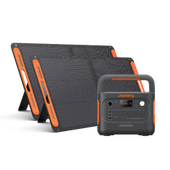



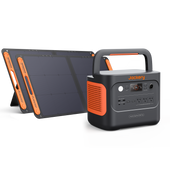

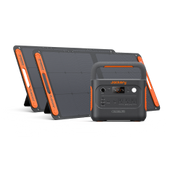
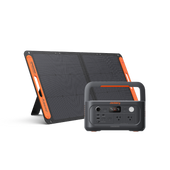
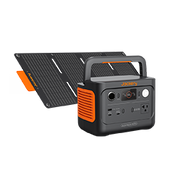
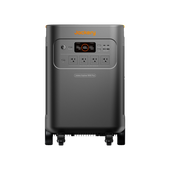

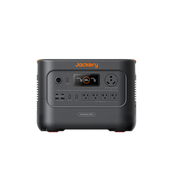
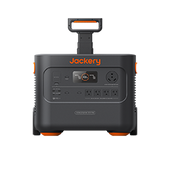
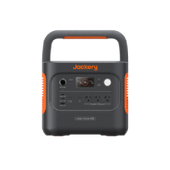
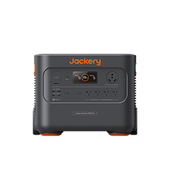

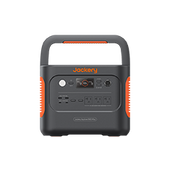
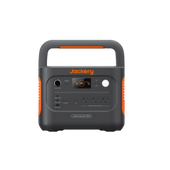
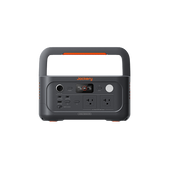

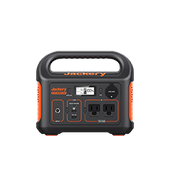
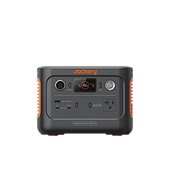
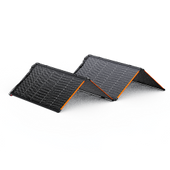
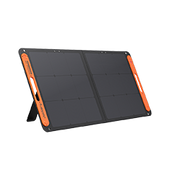

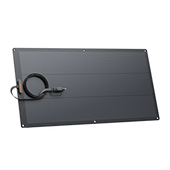
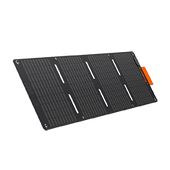
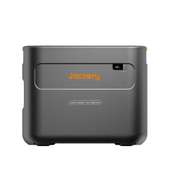
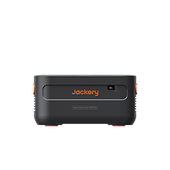
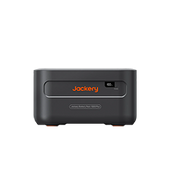
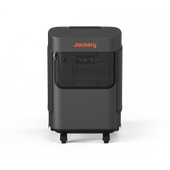
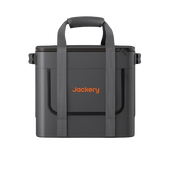
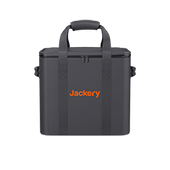
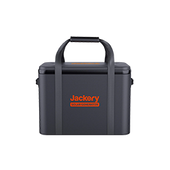
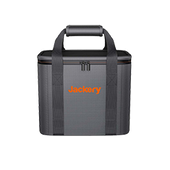
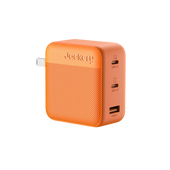
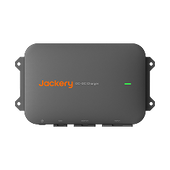
![[Add-on] Jackery Manual Transfer Switch for Explorer 5000 Plus](http://ca.jackery.com/cdn/shop/files/add-on-jackery-manual-transfer-switch-for-5000-plus-240V.webp?v=1757043692&width=170)
